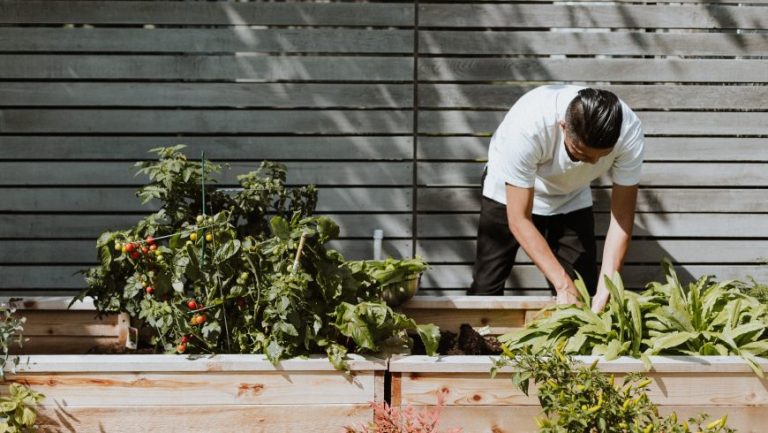Sustainability has become a vital aspect of our daily lives. It encompasses every aspect of our lives, from the food we eat to the clothes we wear and even the way we garden. A sustainable and zero-waste gardening system at home not only ensures a healthy environment but also helps us to save money while promoting a healthier lifestyle. In this article, we’ll explore different sections and ways to create a sustainable and zero-waste gardening system at home.
Planning Your Garden
The first step to creating a sustainable and zero-waste garden is to plan your garden. This means selecting the right plants, choosing the right location, and determining the size of your garden. You should choose plants that are native to your area or those that are well-suited to your region’s climate. This will reduce the need for irrigation and save water.
You should also consider the location of your garden. The ideal location is one that gets plenty of sunlight and has well-draining soil. If you’re planting in containers, ensure that they’re placed in a location that receives plenty of light. This will help your plants to grow strong and healthy.
Composting
Composting is an essential aspect of a sustainable and zero-waste gardening system. It helps to reduce waste, promote soil health, and save money on fertilizers. Composting is the process of breaking down organic matter, such as food scraps, yard waste, and other materials, into nutrient-rich soil.
To start composting, you’ll need a compost bin. You can either purchase a compost bin or make one yourself using recycled materials. Once you have your compost bin, you can start adding organic matter. Ensure that you add a mix of green and brown materials to ensure proper decomposition.
Green materials include food scraps, grass clippings, and other nitrogen-rich materials. Brown materials include leaves, twigs, and other carbon-rich materials. You should also ensure that you turn your compost pile regularly to promote aeration and proper decomposition.
Water Conservation
Water conservation is an essential aspect of a sustainable and zero-waste gardening system. It helps to reduce water waste and save money on water bills. There are different ways to conserve water in your garden, including drip irrigation, rainwater harvesting, and mulching.
Drip irrigation is an efficient way to water your plants. It involves delivering water directly to the roots of your plants, reducing water waste. Rainwater harvesting involves collecting rainwater in barrels or other containers and using it to water your plants. Mulching involves placing a layer of organic material, such as leaves or grass clippings, on top of the soil to help retain moisture.
Importance of Recycling
Recycling is an essential aspect of a sustainable and zero-waste gardening system, and the importance of recycling cannot be overstated. It helps to reduce waste and promote a healthier environment. Recycling involves converting waste materials into new products, reducing the need for new resources.
You can recycle different materials in your garden, including plastic pots, glass bottles, and cardboard boxes. You can also repurpose old items, such as buckets and barrels, to use as containers for your plants. By recycling and repurposing materials, you can reduce waste and save money on new materials.
Natural Pest Control
Natural pest control is an essential aspect of a sustainable and zero-waste gardening system. It helps to control pests without the use of harmful chemicals, promoting a healthier environment. There are different ways to control pests naturally, including using companion planting, neem oil, and natural predators.
Companion planting involves planting certain plants together to repel pests. For example, planting marigolds near your tomatoes can help to repel aphids. Neem oil is a natural pesticide that’s derived from the neem tree. It’s effective against a wide range of pests and is safe for humans and pets. Natural predators such as ladybugs, lacewings, and praying mantises can also help to control pests in your garden.
Organic Fertilizers
Organic fertilizers are an essential aspect of a sustainable and zero-waste gardening system. They help to promote soil health, improve plant growth, and reduce the need for chemical fertilizers. You can make your own fertilizers from natural materials such as compost, manure, and bone meal.
To use organic fertilizers, you should apply them to your garden beds or containers according to the instructions. You can also make your own organic fertilizer by composting food scraps and yard waste. Organic fertilizers help to promote healthy soil and plants, reducing the need for chemical fertilizers that can be harmful to the environment.
Creating a sustainable and zero-waste gardening system at home is essential for promoting a healthier environment and lifestyle. Through utilizing the above tips, you can create a sustainable and eco-friendly garden that’s not only beautiful but also promotes a healthy environment. Additionally, you can save money on water bills, fertilizers, and other gardening expenses, while also reducing your carbon footprint. The importance of sustainability cannot be overstated, and it all begins in our own backyards. So, go ahead and create your sustainable garden today and enjoy the benefits of an eco-friendly lifestyle.

